
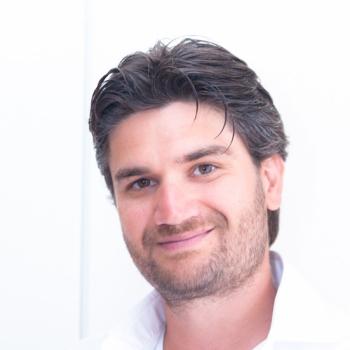
Francesco Ferretti
Creator and Scientific Board
Creator and Scientific Board
Dr. Ferretti is a quantitative and computational marine ecologist specialized in research synthesis. His scientific work is on marine conservation, fishery sciences, population dynamics, and quantitative ecology with a special interest in sharks and rays. He worked extensively on analyses of elasmobranch abundance, distribution and temporal trends in the Mediterranean Sea and throughout the world. Francesco is a research associate at Hopkins Marine Station of Stanford University.
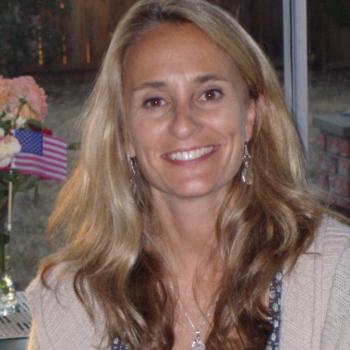
Fiorenza Micheli
Scientific Board
Scientific Board
Fiorenza Micheli is a marine ecologist and conservation biologist conducting research and teaching at the Hopkins Marine Station of Stanford University, where she is also the David and Lucile Packard Professor of Marine Science and the Director, with Jim Leape, of Center for Ocean Solutions. Micheli’s research focuses on the processes shaping marine communities and incorporating this understanding in the management and conservation of marine ecosystems.

Sal Jorgensen
Scientific Board
Scientific Board
Sal Jorgensen is a research scientist for the Monterey Bay Aquarium’s Project White Shark. Sal’s research interests include studying movements and migrations of commercially targeted sharks and fishes, acoustic tagging and telemetry, and Geographic Information Systems (GIS) analysis and modeling. Before joining the aquarium, Jorgensen was a postdoctoral scholar at Stanford University’s Hopkins Marine Station. Beginning in 2006, he led the white shark research team under the Tagging of Pacific Pelagics (TOPP) program.
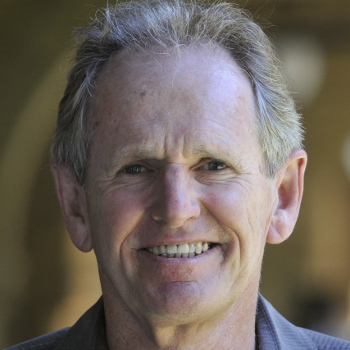
Trevor Hastie
Scientific Board
Scientific Board
Trevor Hastie is the John A Overdeck Professor of Statistics at Stanford University. Hastie is known for his research in applied statistics, particularly in the fields of data mining, bioinformatics and machine learning. He has published six books and over 180 research articles in these areas. Prior to joining Stanford University in 1994, Hastie worked at AT&T Bell Laboratories for 9 years, where he helped develop the statistical modeling environment popular in the R computing system. He received his B.S. in statistics from Rhodes University in 1976, his M.S. from the University of Cape Town in 1979, and his Ph.D from Stanford in 1984.

Steven Haddock
Scientific Board
Scientific Board
Steve is a Senior Scientist at MBARI. His work focuses on deep-sea gelatinous zooplankton. He is doing research on bioluminescence, biodiversity, and ecology of deep-sea and open-ocean ctenophores, siphonophores, radiolarians, and medusae. Steve's educational background includes a B.S. from Harvey Mudd College and a Ph.D. from the University of California, Santa Barbara. He also holds an adjunct professorship in the Ecology and Evolutionary Biology department at the University of California, Santa Cruz. He is the creator of the citizen-science site JellyWatch.org.

Edward Fox
Scientific Board
Scientific Board
Dr. Fox is a Professor of Computer Science (and by courtesy of Electrical and Computer Engineering) at Virginia Tech, where he has researched and taught about “information” since 1983. As part of his work directing its Digital Library Research Center, and as a member of the Global Change Center, he has applied a variety of information technology, artificial intelligence, and human-computer interaction methods to global issues. He is a Fellow of ACM, and a Fellow of IEEE, cited for his work on digital libraries and information retrieval (e.g., search engines). He has (co)authored over 1100 publications/presentations. His BS (1972) was at MIT, and his MS (1981) and PhD (1983) at Cornell.

Zac Yung-Chun Liu
sharkPulse Staff
sharkPulse Staff
Zac is a geophysicist turned data scientist and a machine learning engineer for De Leo Lab at Stanford University. He received his MS in Geological Sciences from Brigham Young University. He specializes in remote sensing image processing, geospatial analysis, scientific computing, modeling, and deep learning. He is developing computer vision algorithms with convolutional neural networks for image classification and object detection tasks in SharkPulse project.
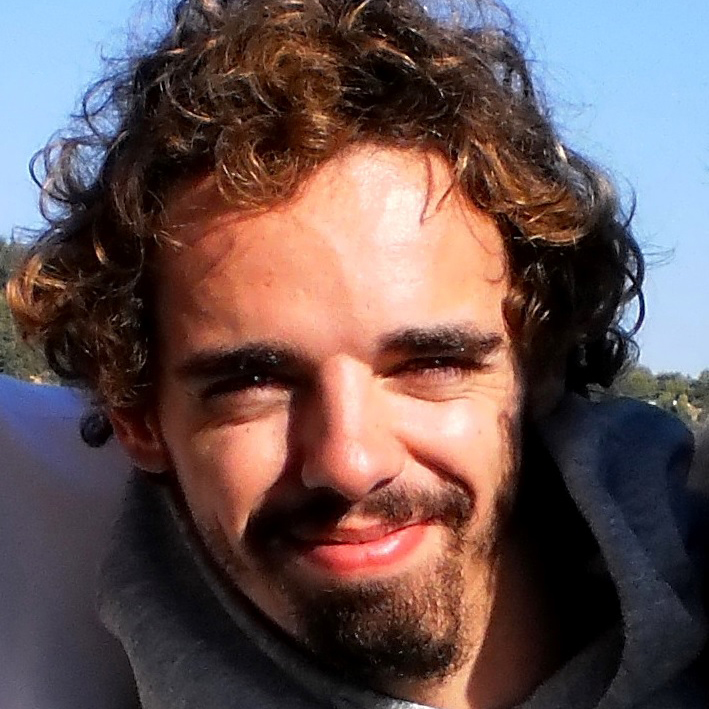
Filippo Bargnesi
sharkPulse and
sharkPulse Italia Staff
sharkPulse and
sharkPulse Italia Staff
sharkPulse Italia Staff
Filippo is a Ph.D student in marine biology and ecology at the Marche Polytechnic University (Ancona, Italy). His Ph.D is focused on shark conservation related to Citizen Science actions. He is also a staff member of the Cattolica Aquarium (RN, Italy), that co-fund his Ph.D. fellowship. He is working for creating a sharkPulse network in the Mediterranean Sea and a co-founder of the Italian sharkPulse team.
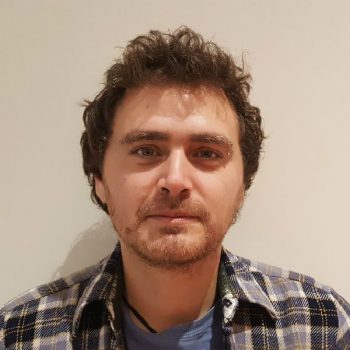
Stefano Moro
sharkPulse and
sharkPulse Italia Staff
sharkPulse and
sharkPulse Italia Staff
sharkPulse Italia Staff
Stefano is a graduate M.Sc. in Marine Sciences (Sapienza University of Rome). As a quantitative marine ecologist, he is interested in sharks abundance and distribution patterns and he is currently reconstructing the historical baselines of white sharks occurrence in the Mediterranean Sea using opportunistic sightings. He is involved in developing the sharkPulse network and is part of sharkPulse Italia Staff. He is currently a visiting scholar at Hopkins Marine Station of Stanford University.
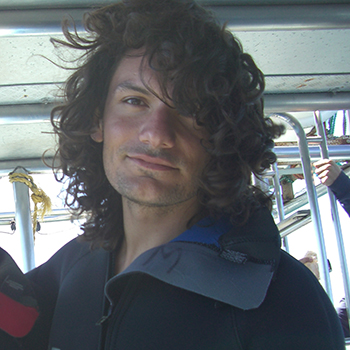
Agostino Leone
sharkPulse Italia Staff
sharkPulse Italia Staff
Agostino Leone is an evolutionary and marine biologist interested in the population genetics and ecology of marine organisms. His main research interests ranging from the evolution, connectivity and dispersal of fish populations (with a special focus on elasmobranchs), to the development and use of new genomic and biotechnological resouces for the study and the sustainable management of fishery resources. He is completing his PhD at the University of Bologna, Italy, with a thesis focused on the population genetics and genomics of Mediterranean/North-Eastern Atlantic blue shark.
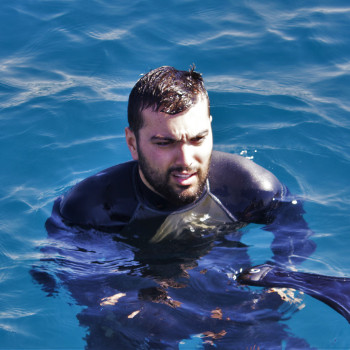
Ioannis Giovos
sharkPulse Greece Staff
sharkPulse Greece Staff
Ioannis Giovos is a marine biologist with a background on the conservation of the Mediterranean marine megafauna. His research focuses on citizen science, on social media in science, on the illegal trade of elasmobranchs and on invasive species. Ioannis is the co-founder of iSea, part of the CIESM Task Force for Sharks and Rays and member of the ICES WGHIST. He has been involved in several research projects and has more than 15 articles published in peer-review journals and more than 20 scientific communications in conferences.
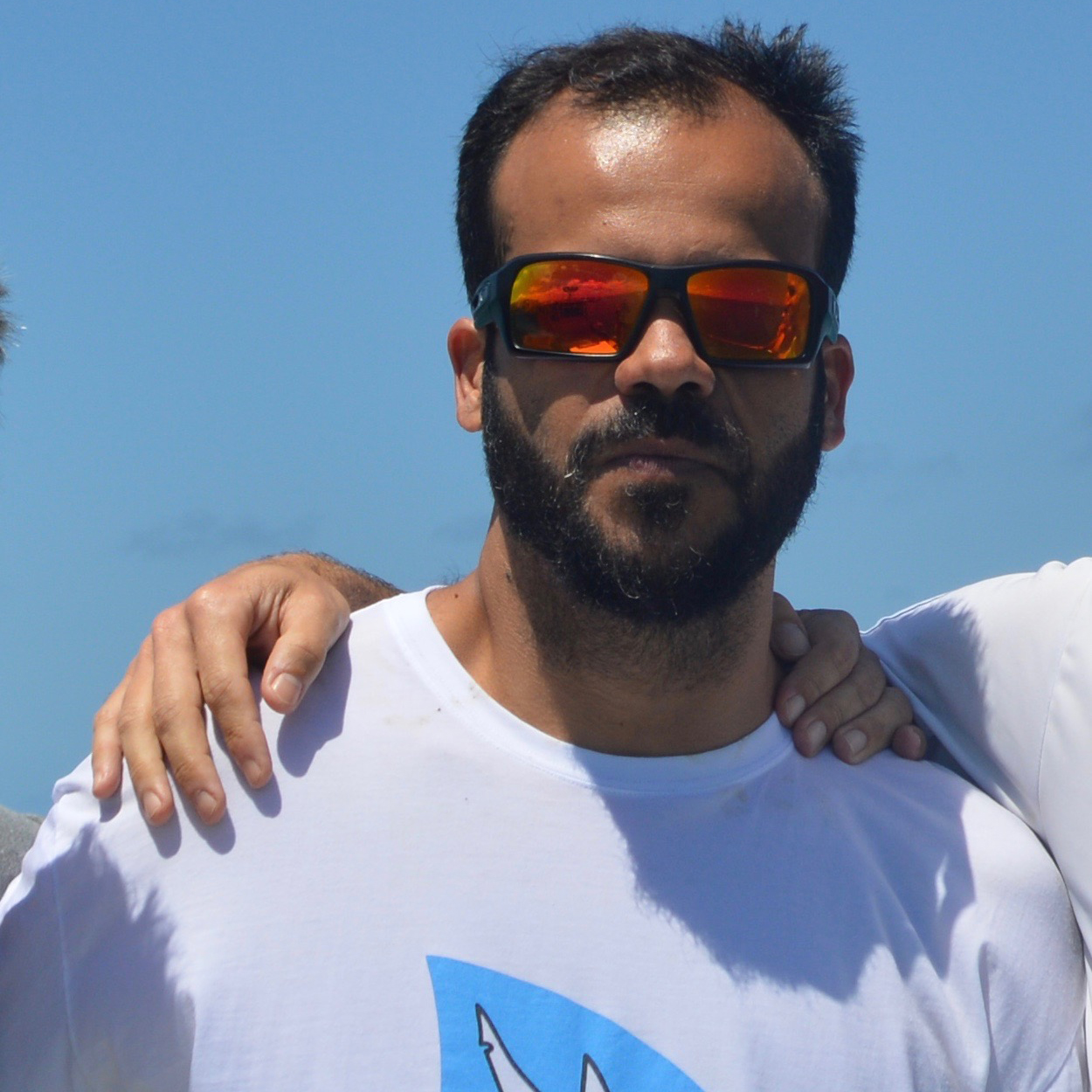
Rodrigo Barreto
sharkPulse Brazil Staff
sharkPulse Brazil Staff
Responsible for the synthesis of information in the South Atlantic, Rodrigo is a marine biologist with a master's degree in ecology and a doctorate in fishing and wildlife. With experience in elasmobranch ecology and quantitative techniques of exploited fish populations, currently coordinates the national action plan for the conservation of sharks and rays in Brazil. Rodirigo is also the coordinator of the regional sharkPulse focal point sharkPulse Brazil.
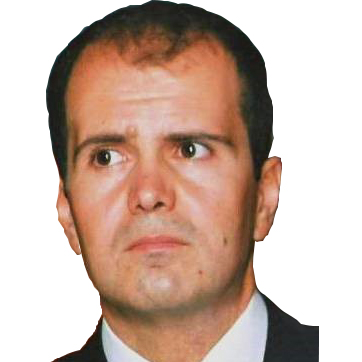
Dimitris Damalas
sharkPulse Greece Staff
sharkPulse Greece Staff
Dimitris is an Assistant Researcher at the Institute of Marine Biological Resources and Inland Waters at HCMR. His scientific background mainly concerns: fisheries control, enforcement and management; population dynamics; elasmobranch biology; Data Collection Framework implementation; EU policies; design and implementation of web-based fishery databases; deep water species and coral communities; fisheries historical data; fish habitats and EUNIS ecotopes mapping. As an European Commission employee at the Joint Research Centre he has been servicing the Scientific Technical and Economic Committee on Fisheries (STECF) as focal person for the Mediterranean fisheries management.
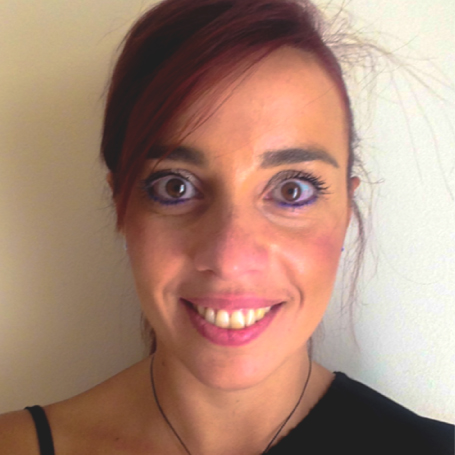
Vicky Kousteni
sharkPulse Greece Staff
sharkPulse Greece Staff
Vasiliki Kousteni is a young scientist currently working as a Postdoctoral Researcher in the Institute of Marine Biological Resources and Inland Waters (IMBRIW) in the Hellenic Centre for Marine Research (HCMR) in Athens, Greece. Her main research interests focus on Chondrichthyes: biology and ecology, population genetics, pollution impact, fisheries, conservation and management, upon which she has considerable experience, gained during 15-years time through her higher education and participation in research programs and specialized workshops. Her scientific excellence has been recognized by European and National Bodies (8 scholarships and awards) and by the International Scientific Community (reviewer in international scientific journals and conferences).
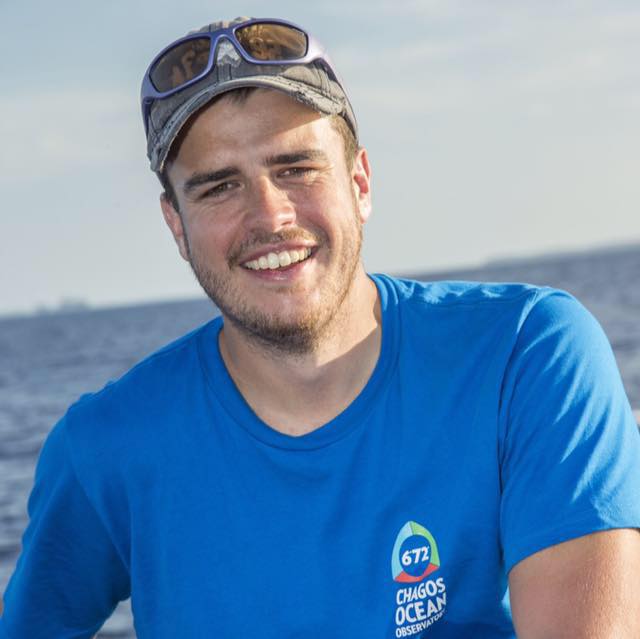
David Curnick
sharkPulse UK Staff
sharkPulse UK Staff
David Curnick is a marine ecologist at the Institute of Zoology, Zoological Society of London. David’s research seeks to understand the spatial and temporal behaviour patterns of sharks and other pelagic predators, and how they interact with both marine protected areas (MPA) and fisheries. Since 2010, David has focused his research on the British Indian Ocean Territory MPA through a multi-disciplinary approach of telemetry tagging, remote sensing and historical fisheries analyses, to assess the extent to which the MPA affords protection to pelagic predators in the Indian Ocean. David is the coordinator of the sharkPulse network in the United Kingdom.

Athina Papadopoulou
sharkPulse Greece Staff
sharkPulse Greece Staff
Athina is a marine scientist, currently working in iSea. She holds a BSc in Marine Sciences from the University of the Aegean, completing her MSc in Biotechnology-Molecular and Microbiological Analysis at the Aristotle University of Thessaloniki. For her Bsc dissertation, she collaborated with the Natural Sciences, Education, and Research Centre of the University of Szczecin, in diatom research. She is fluent English, Greek, and Polish speaker, passionate about the conservation and protection of marine ecosystems with a special interest in Chondrichthyes.
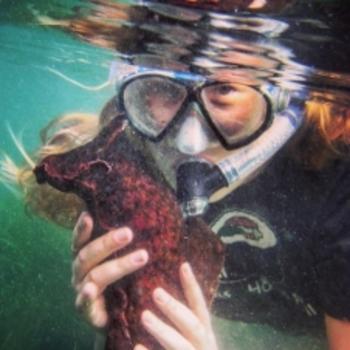
Cheryl Butner
sharkPulse Staff
sharkPulse Staff
Cheryl Butner has an MA in International Environmental Policy from Monterey Institute of International Studies and is research assistant for the Micheli Lab at Stanford University. Cheryl is currently working for SharkPulse as communications and social media manager and doing the Spanish translations for the project.
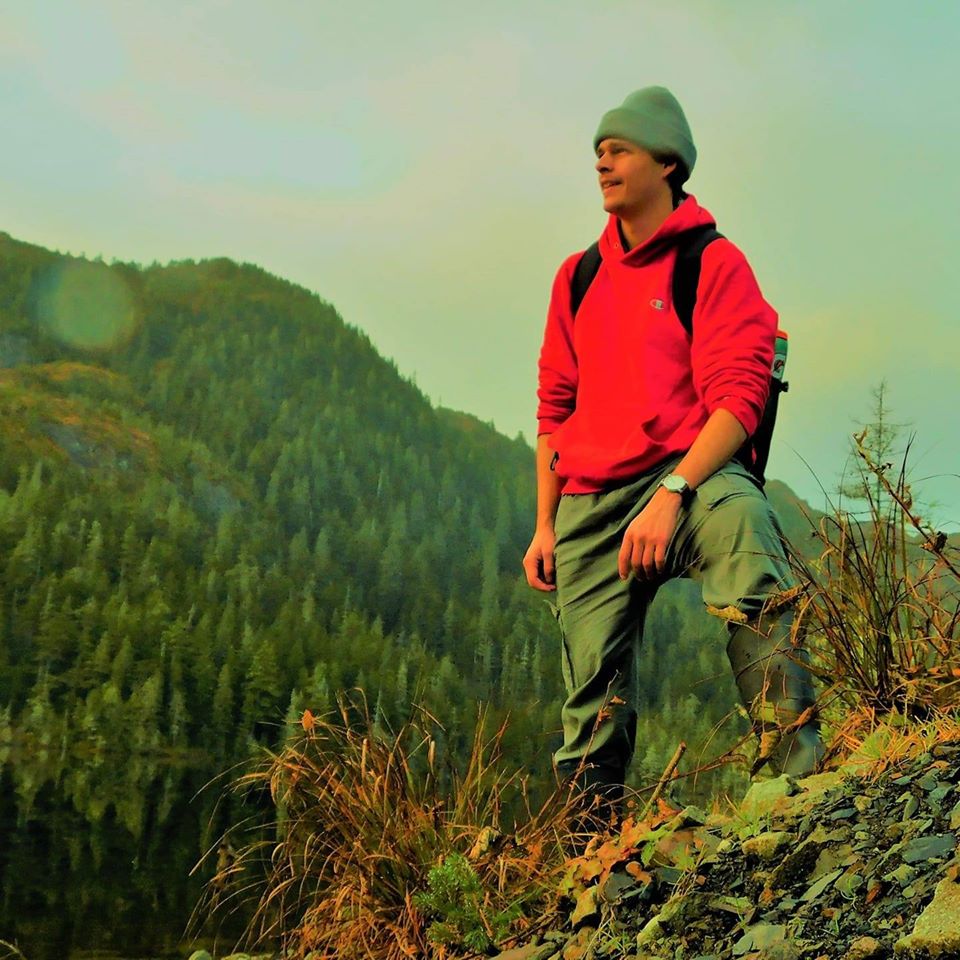
Jeremy Jenrette
sharkPulse Staff
sharkPulse Staff
Jeremy is a PhD student in Dr. Ferretti's lab at Virginia Tech. He is a former biochemist turned data scientist who is interested in web scraping, machine learning, image processing, and database management. He developed the shark classification architecture using convolutional neural networks and object detection. His research is focused on scraping, classifying, and mapping inferred shark sightings from Instagram.

Chiheb Lemsi
sharkPulse Tunisia Staff
sharkPulse Tunisia Staff
Chiheb Lemsi is a graduate M.Sc. student in Marine Science at the University of Science Sfax. As a dedicated marine researcher, he focuses on sharks and rays, studying their abundance and distribution in the Gulf of Gabes. He is interested in various marine species and actively works on reconstructing historical data to better understand population dynamics. Chiheb contributes to multiple research initiatives and collaborates with professional networks to enhance his impact. He is fluent in French and English and has intermediate proficiency in German

Hani Berriche
sharkPulse Tunisia Staff
sharkPulse Tunisia Staff

Maissa Chatti
sharkPulse Tunisia Staff
sharkPulse Tunisia Staff
Past Collaborators
Hector Edgar Sandoval is a Computer Science undergraduate at California State University, Monterey Bay. He worked on the development and enhancement of the Baseline server and the SharkPulse website.
Brian De Anda is a Computer Science undergraduate at California State University, Monterey Bay. Brian worked on the development and improvement of the SharkPulse Android mobile application.
Ahra Lee is an MA student in the Translation and Localization Management Program at the Middlebury Institute of International Studies. She helped to provide Korean translation and localization for the SharkPulse app and related materials.
Beth Shigemitsu is an MA student in the Translation and Localization Management Program at the Middlebury Institute of International Studies. She translated the Japanese version of the SharkPulse app and related materials.
Andy Alvarez is a senior at Cal State Monterey Bay currently studying Biology. He enjoys computer programming and creating digital art. His main academic goals are: to graduate from his current institution, attend medical school and ultimately become a physician in neurology. During summer 2013, Andy collaborate in the development of SharkPulse for iPhone.
Arturo Lopez is an undergraduate student at Cal State Monterey Bay pursing a computer science degree with an emphasis in software engineering. Arturo developed new features in the SharkPulse iPhone app and extracted shark photos from the Picasa Web Albums.
Emanuel Mazzilli is a computer engineer and MSc from the University of Modena and Reggio Emilia, Italy. He is currently working at Twitter. He collaborated with SharkPulse developing the SharkPulse App for Android.
Dr. Vasiliki Kousteni worked as a Postdoctoral Researcher in the Institute of Marine Biological Resources and Inland Waters (IMBRIW). Her main research interests focus on Chondrichthyes: biology and ecology, population genetics, pollution impact, fisheries, conservation and management.
Anne Thompson is an MA student in the Translation and Localization Management Program at the Middlebury Institute of International Studies. She served as project coordinator for multilingual translation and localization efforts for the SharkPulse app and related materials.
Tianyi Yang is a native Chinese speaker, currently an MA student in the Translation and Localization Management Program at the Middlebury Institute of International Studies. She helped with translation and localization into Simplified Chinese for the SharkPulse app and related materials.
Dimitris is an Assistant Researcher at the Institute of Marine Biological Resources and Inland Waters at HCMR. His scientific background mainly concerns: fisheries control, enforcement and management; population dynamics; elasmobranch biology; Data Collection Framework implementation; EU policies; design and implementation of web-based fishery databases; deep water species and coral communities; fisheries historical data; fish habitats and EUNIS ecotopes
mapping.